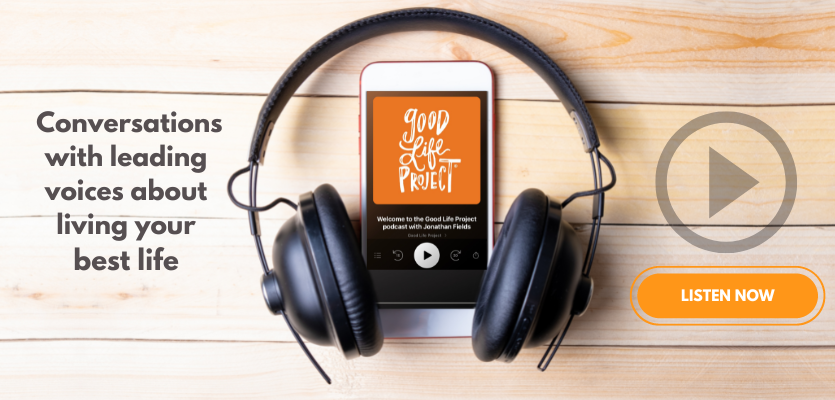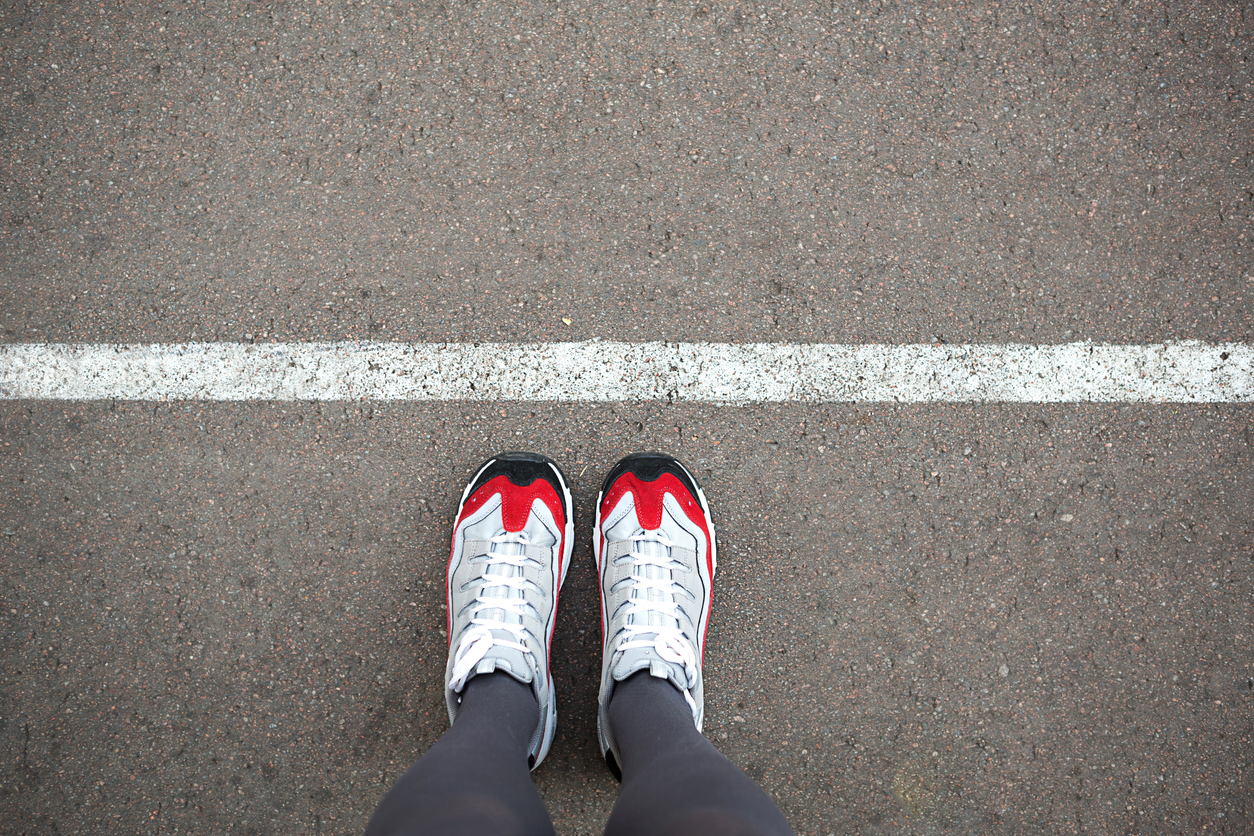Feeling alive is a core human need — that’s why things like periods of depression, or being stuck in a situation you feel powerless to leave is so painful for us.
The truth is, sometimes there are circumstantial factors that make it hard to feel alive. We’d never discount those, and this is definitely not going to be one of those “Count your blessings and you’ll magically feel better!” articles. But it’s also true that many factors about how we feel are in our control.
Here are three areas to focus on if you want to feel alive again:
Like everything, feeling alive starts with awareness.
Cultivating awareness might seem like a weird place to start in your quest to feel more alive. But as we’ve said before, awareness is life.
Without developing the skills and commitment to remain mindful as you move through your life, you’re naturally going to fall into autopilot mode. That’s just how brains work — they’re wired to favor efficiency and shortcuts, and if given the chance, they’ll have you moving through life in a series of old patterns, rather than active choices.
If you start practicing mindfulness though and make a point of being actively aware of what’s happening in your life from moment to moment — the good stuff and the bad — then you can’t help but feel more alive. Because it lets you be more present in your life, in what’s happening in front of you, rather than getting lost in old patterns, fretting about the past, or spinning about the future. A good place to start with this is a mindfulness practice: research shows that even 10 minutes a day of mindfulness meditation has lasting effects on your brain and behavior.
Even if nothing changes on the outside, you’ll be more aware, more tuned into what’s happening. Suddenly that boring bus ride you spend scrolling through Instagram becomes an opportunity to notice the colors of the trees you pass, or the funny signs on the sidewalk. That conversation you’ve had with your partner a thousand times becomes a chance to know them better, because you’re actually listening with your full self. Mindfulness gives you the opportunity to consciously choose how you engage with the world, and that’s the very core of feeling alive.How do you start? Practice!
Work on directing your attention to the here and now, and gently bringing your mind back to the present when it wanders off. To make it easy for you, we’ve created a few guided mindfulness audios for you here.
Practice the vitality-boosting hat-trick of sleep, nourishment, and movement.
While we all differ when it comes to the specifics of how our bodies work, there are a few universals that all humans need to feel alive. There’s lots of lenses through which to look at these needs –– GLP podcast guest Dr. Frank Lipman has a six-part wellness “mandala” which can be a useful jumping off point –– but high quality sleep, nourishment, and movement are three core ones that show up across a wide range of models.
High quality sleep
Getting good sleep is one of the very best things you can do for your overall health; it affects everything from hormonal balance to performance at work to life expectancy to how your skin and hair look and so much more. Do your best to practice good sleep hygiene and do some experimenting to see how much sleep you truly need. (Chances are it’s more than you’re getting!)
Nourishment
What you eat has a direct impact on your mood via the gut-brain-skin axis — and the more you can eat foods that truly nourish you, the better. There’s two things to think about here: nutritional density and enjoyment. The more nutrient-dense your food is, the more building blocks you give your body to work with. But choking down a maca smoothie when you actually hate maca is counterproductive. Research shows that enjoyment of your food is key in getting the maximum nutrition out of it, so play around and see what kinds of foods are most nourishing to you on both levels.
Movement
All bodies move differently, but they all crave movement of some kind –– which makes developing a movement practice a key part of feeling alive.
“All the observational studies [in a meta-analysis] reported positive associations between physical activity and happiness. As little as 10-min physical activity per week or 1 day of doing exercise per week might result in increased levels of happiness.” (Journal of Happiness Studies).
There’s all the traditional benefits of exercise you’ve heard about for years, but did you know that exercise also helps you reset your nervous system? Just like with nourishment, the enjoyment factor counts here, so don’t just grit your teeth through a workout — find what works for you, and accommodates whatever your abilities might allow.
Again, nothing you haven’t heard before … but as Dr. Lipman says,
“All these little ordinary things in life that we take for granted have extraordinary effects on our health.”
Cultivate gratitude and a growth mindset.
Of course, our sense of aliveness is just as much connected to the mind as the body. Being intentional about the kinds of things you spend your mental energy on can help a lot with feeling alive, and cultivating gratitude and a growth mindset are two great places to start. These two things are great for helping you feel alive regardless of what’s going on, and can help you develop grit and resilience, which is especially important for feeling alive when you’re going through hardship.
You can think of gratitude like a positivity vitamin.
“Over the past 10 years, gratitude has been hailed as one of the most universally effective mindset boosters and happiness enhancers on the planet. It’s also been heavily researched and validated beyond the realm of anecdotal self-help.” (How to Live a Good Life).
Our brains are wired for negativity, but making a habit of thinking about things you’re grateful for can help offset that. Something as simple as listing out a couple things you’re grateful for once a week can be effective, though if you want to push the boat out, writing a letter of gratitude to a friend and then reading it to them in person is a huge gratitude boost.
Another way to cultivate gratitude? By deliberately seeking out a sense of wonder and awe. From Wonder Seeker:
“Our capacity for wonder and delight is also the gateway to our joy. It is vital to our aliveness. It is worth cultivating and honing because our lives become so much richer for it … It’s a celebration of being here and a desire to protect this place we call home.”
Similarly, a growth mindset can help remind you that you’re not a static person — you can change, and grow, and make different decisions. If you’re not skilled at something now, you can get skilled. If you don’t know what to do, you can figure it out.
When you adopt a growth mindset, “traits are not simply a hand you’re dealt and have to live with, always trying to convince yourself and others that you have a royal flush when you’re secretly worried it’s a pair of tens. In this mindset, the hand you’re dealt is just the starting point for development. This growth mindset is based on the belief that your basic qualities are things you can cultivate through your efforts.” (Mindset).
And how do you do that? Practice.
“Remind yourself that your ability to do almost anything is about your willingness to invite, engage with, and learn from challenges and tests. The faster path to improvement and success is to embrace rather than run from adversity. Think about every opportunity to do something you can’t yet do, to learn something you don’t yet know, as a gift. A success catalyst.” (How to Live a Good Life).
Finally … do consider if there are other factors at play, and have self-compassion.
Like we said in the beginning, the reality is that sometimes there are things making you feel less-than-alive that aren’t totally in your control. Medical conditions like depression and addiction are closely connected to despair, and situations that make you feel powerless or simply stuck can also make you feel like you’re living life in black and white. Always consult a qualified mental health professional if you find yourself in, or heading toward, a state of genuine or sustained distress.
All of that to say, do consider the reality of your situation, and get the help and support you need to stay well, even as you’re trying out some of the other suggestions above. The whole point of this process is feeling more alive, and you won’t get there by beating yourself up, or focusing on the negative. Be gentle with yourself, and have compassion –– this is big work!
Let’s Recap:
— Feeling alive is a core human need — and yet, we all go through periods where we feel less-alive than we’d like. Sometimes there are factors out of your control, of course. But a lot of times you can make a shift in how you feel.
— Cultivating awareness is crucial for feeling alive. Even if nothing else changes, the more mindful you are, the more alive you’ll feel, because you’ll be tuned in to your life, instead of floating through it.
— There’s loads of other ways to cultivate a sense of vitality, with some of the best being improving your sleep, eating in ways that nourish you, moving your body in ways that work for you. Sounds basic, but it’ll make a world of difference.
— Practicing gratitude and cultivating a growth mindset are also powerful tools for feeling alive, particularly in the face of hardship.
— Seek help from a qualified mental health profession when needed.
— Above all, feeling alive is a “contact sport”. You can read about it all you want, but the real shifts here will be in the doing.
Feeling ever-more-alive is, well, a life-long process. And we’re here for you every step of the way! Join the GLP Newsletter family to get the latest research-backed articles on how to live a good life. We craft each email with an intention to connect, and truly enjoy getting to know each and every one of you. Join us here.





